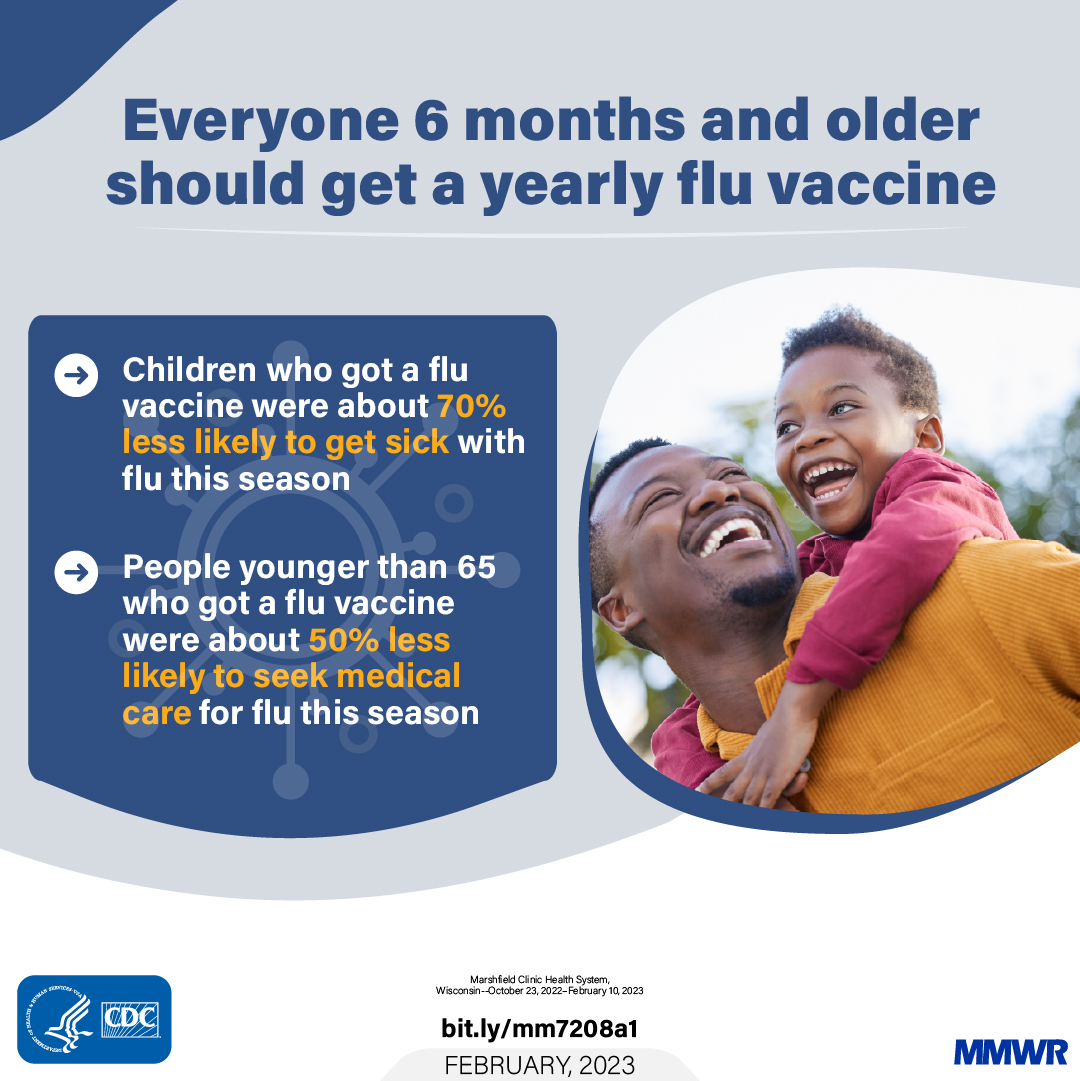Data from two simultaneous studies conducted at Marshfield Clinic Health System found that 2022-23 flu vaccines reduced the risk of laboratory-confirmed flu A illness resulting in a doctor’s visit by 54% among children and adults younger than 65. A separate study in children found that vaccination reduced symptomatic flu A illness by 71%. These estimates show 2022-23 flu vaccines are providing significant benefit, including protection against the H3N2 viruses that often cause more severe illness.
Marshfield Clinic Research Institute Research Scientist Huong McLean, Ph.D., presented the main findings to the Center for Disease Control and Prevention’s Advisory Committee on Immunization Practices (ACIP) on Feb. 22. The study was published Feb. 23 in the CDC’s Morbidity and Mortality Weekly Report. McLean was joined by her Research Institute colleagues Joshua Petrie, Ph.D.; Kayla Hanson, M.P.H.; Jennifer Meece, Ph.D.; Edward Belongia, M.D.; as co-authors of the study. This is the first published estimate of flu vaccine effectiveness in the US for the 2022-23 season.
“The current season’s influenza vaccines are providing substantial protection against influenza, and this is great news during a season dominated by H3N2 viruses,” McLean said. “These findings are consistent with estimates reported in the southern hemisphere for the 2022 season and Canada for the current season, where similar viruses circulated.”
The Marshfield research connection
From Dec. 2 to Feb. 10, the study team enrolled 545 youth and adults (<65 years old) who sought care for acute respiratory illness (ARI) at selected Marshfield Clinic Health System centers. Of those, 21% had influenza A infection, and the majority (75%) of infections were caused by the H3N2 subtype; 25% were caused by H1N1. Genetic testing of viruses by MCRI confirmed they are genetically similar to the vaccine strains, consistent with national data.
In the second study, vaccine effectiveness against symptomatic influenza was estimated from an ongoing community study of 241 children living in Marshfield and the surrounding area. Each week, participants report on several symptoms, and a nasal swab is collected when a new illness occurs. Swabs are tested for both influenza and SARS-CoV-2 at the MCRI research laboratory. Symptoms that trigger swab collection include fever, cough, loss of smell or taste, sore throat, muscle or body aches, shortness of breath, diarrhea, stuffy nose, or nausea or vomiting.
The MMWR report noted that flu vaccine coverage has been lower in the United States this season compared to the pre–COVID-19 years, particularly among children, pregnant women, and in rural areas. Less than 40% of participants in both Health System studies received the flu vaccine this season.
Dr. McLean and the study team are hoping this report will encourage more people to get vaccinated.
“An annual influenza vaccination is the best strategy for preventing influenza and its complications,” she said. “The CDC recommends that health care providers continue to administer annual influenza vaccine to people older than six months as long as influenza viruses are circulating.”
Both studies are ongoing and will continue until the end of the flu season.

